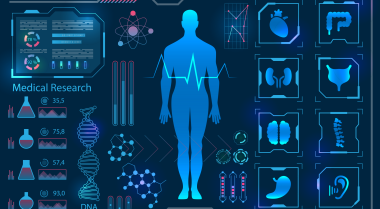Results for ''

HDR UK has created a library that is already improving the quality of research by enabling researchers to share and analyse different phenotypes.

Researchers analysed the primary healthcare records of 7.4 million patients in England to develop a long COVID phenotype, strengthening further research to improve the understanding of the condition.

In May, the HDR UK Impact Commitee selected Thygsen et al.'s paper as the Open Impact Publication of the Month for its impactful use of large datasets to track the impact of the COVID-19 pandemic

The milestone marks the Library as the largest national resource for information, tools and phenotyping algorithms to allow researchers to harness data held in Electronic Health Records.

Dan Thayer, a senior data scientist and team lead at the Secure Anonymised Information Linkage (SAIL) databank, introduces the HDR Phenotype Library – explaining what phenotypes are, why...

We speak to Chris Tomlinson and Johan Thygesen about their latest paper, what it’s like to handle data from over 57 million people, and what they think the future of health data research will...

Metformin is a commonly used diabetes drug that is also thought to benefit people who have heart failure. Researchers studied large-scale health records to understand the impact of diabetes...

Electronic health records represent a treasure trove of data to help improve care, but their unstructured nature makes them difficult to analyse. Researchers from UCL report on views from...

Diabetes is not only a major health problem in itself, but it also increases the risk of cardiovascular and kidney disease. Researchers have used national healthcare records to identify the...